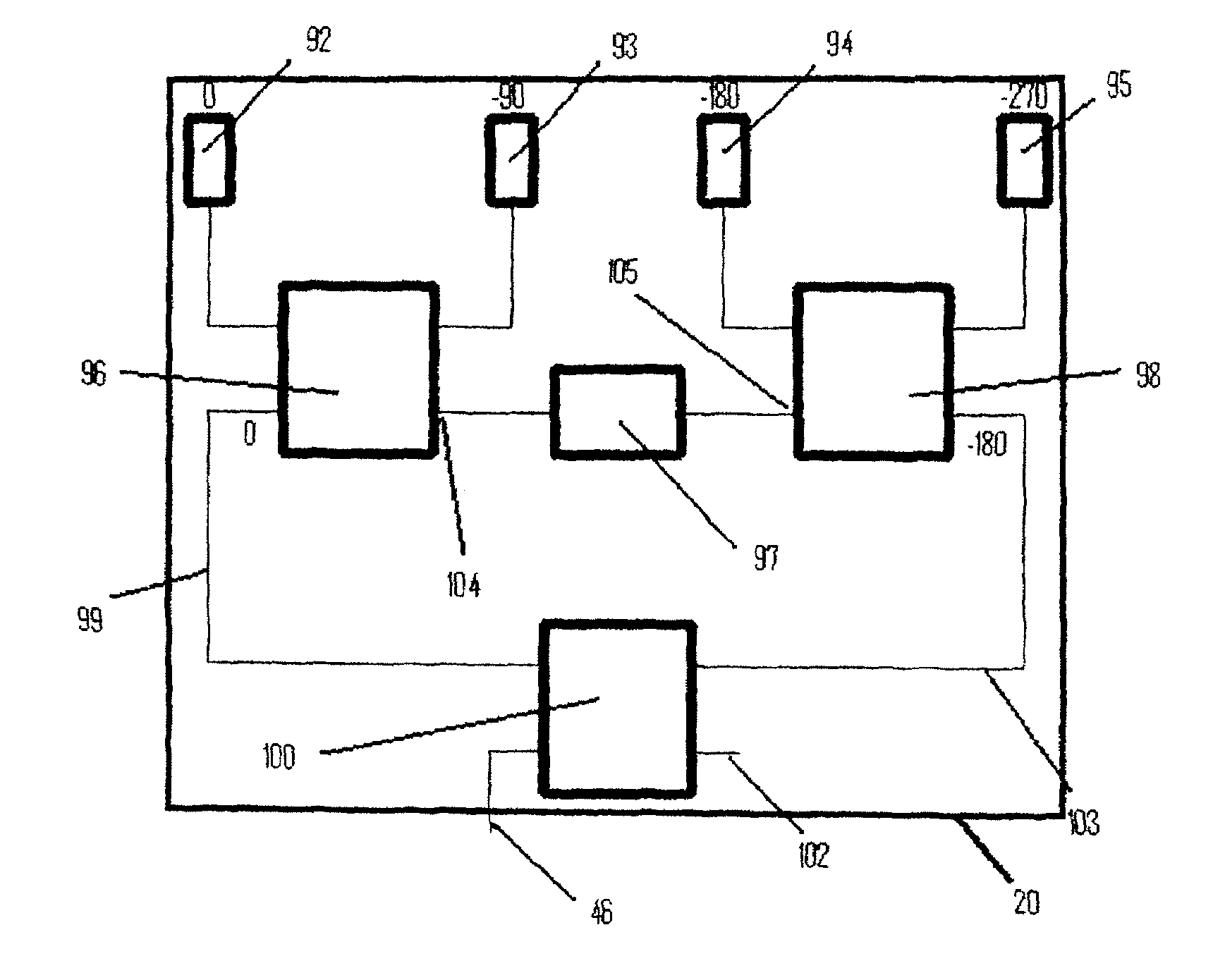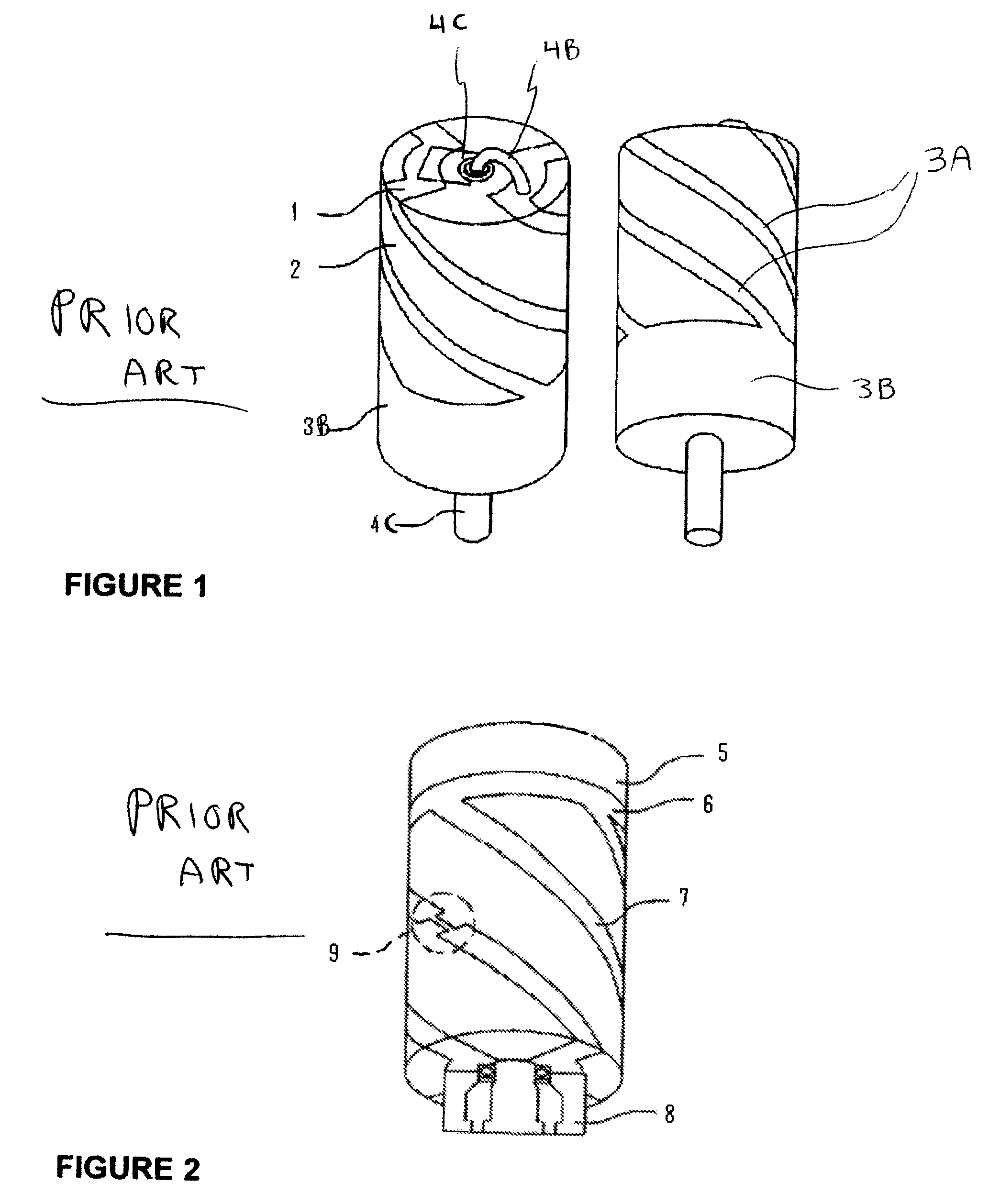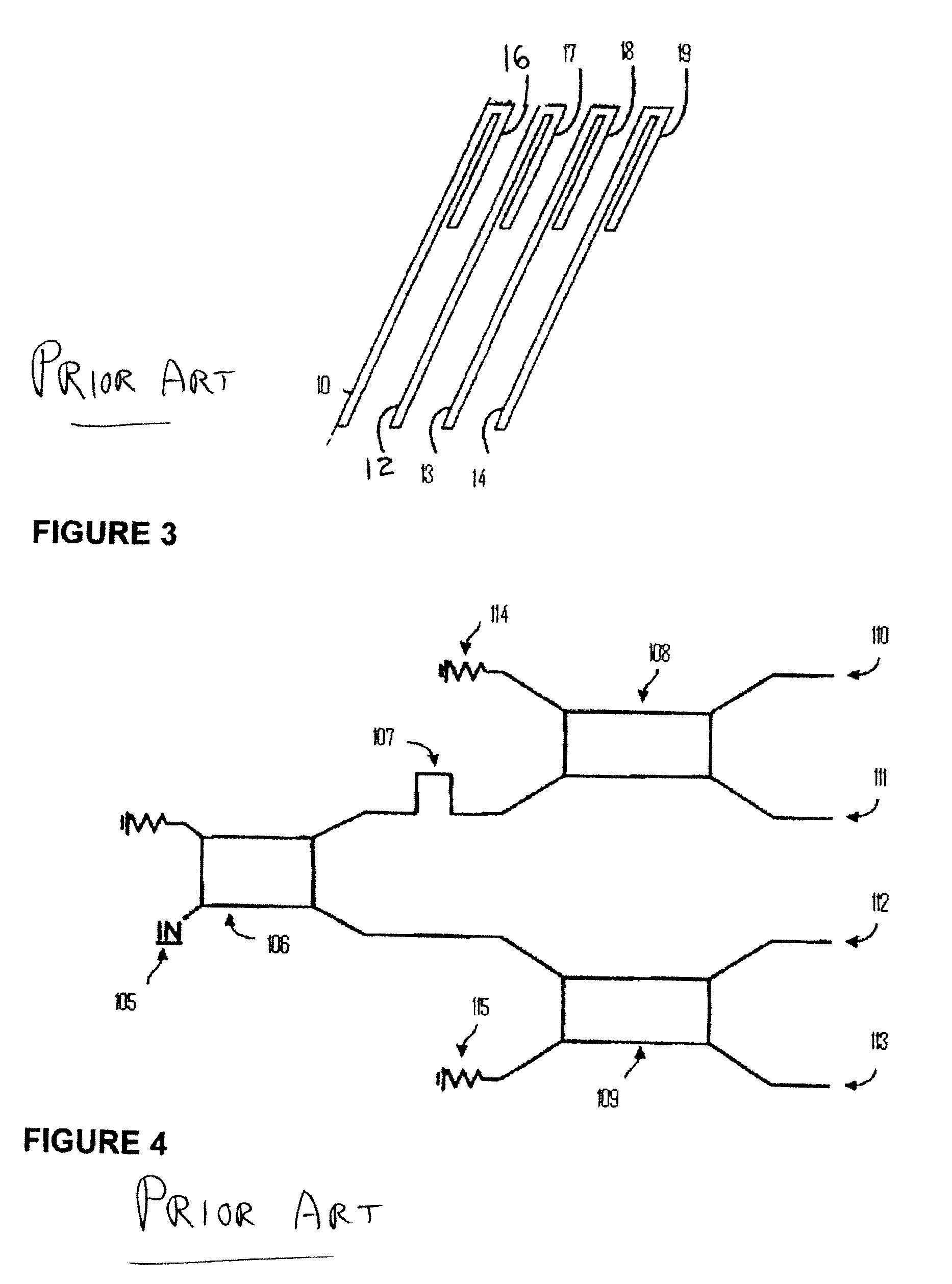Method and apparatus for quadrifilar antenna with open circuit element terminations
a quadrifilar antenna and open circuit technology, applied in the field of antennas, can solve the problems of increasing the demand for higher transmitter/antenna efficiency, increasing the power budget, and reducing the size of the antenna, so as to improve the reception performance and reduce the size
- Summary
- Abstract
- Description
- Claims
- Application Information
AI Technical Summary
Benefits of technology
Problems solved by technology
Method used
Image
Examples
Embodiment Construction
[0049]The following detailed description refers to accompanying drawings that form part of this description. The drawings, though, show only illustrative examples of embodiments, and of arrangements and implementations for practicing the invention. Many alternative configurations and arrangements can, upon reading this description, be readily identified by persons skilled in the arts.
[0050]It will be understood that like numerals appearing in different ones of the accompanying drawings, either of the same or different embodiments of the invention, reference functional blocks or structures that are, or may be, identical or substantially identical between the different drawings.
[0051]It will be understood that, unless otherwise stated or clear from the description, the accompanying drawings are not necessarily drawn to scale.
[0052]It will be understood that particular examples are described and depicted, illustrating examples embodying one or more of the appended claims. It will be fu...
PUM
 Login to View More
Login to View More Abstract
Description
Claims
Application Information
 Login to View More
Login to View More - R&D
- Intellectual Property
- Life Sciences
- Materials
- Tech Scout
- Unparalleled Data Quality
- Higher Quality Content
- 60% Fewer Hallucinations
Browse by: Latest US Patents, China's latest patents, Technical Efficacy Thesaurus, Application Domain, Technology Topic, Popular Technical Reports.
© 2025 PatSnap. All rights reserved.Legal|Privacy policy|Modern Slavery Act Transparency Statement|Sitemap|About US| Contact US: help@patsnap.com



